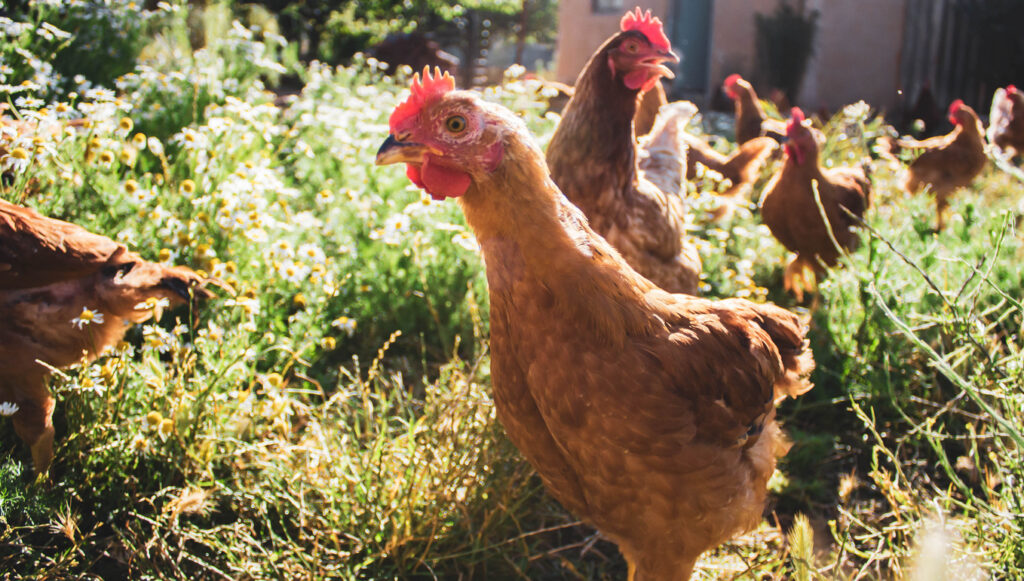Homesteading can be a wonderful way to become more self-sufficient by producing and crafting food and other essentials instead of buying them. It can mean a back to basics lifestyle that’s more sustainable, and learning new skills that are empowering and satisfying. Whether you have a little space or a lot, here are some homesteading projects that are simple and affordable.
1. Composting
Composting is an easy way to help the environment and also create nutrient-rich soil. Instead of throwing away things like leftover food, coffee grounds, and yard waste like leaves and grass clippings, you add them to a container. After that, they begin to decompose and create a nutrient-rich soil.
It’s easy to start composting; you’ll just need a bin in your kitchen, or a pile in your yard. There are lots of different types of containers available, so you can choose whichever type and size works for your space and your budget. Once you get your bin set up, you’re all set. Here’s a helpful guide to get you started.
2. Chicken keeping
Even for people who don’t live in the country, chicken keeping has become a thing. They can be interesting pets, and for most of the year you’ll get fresh eggs!
You’ll need to see what the rules are where you live, but many cities allow at least 2 chickens per residential property. Most don’t allow roosters, so you’ll need to make sure you only get hens.
To keep your chickens, you’ll need a coop (the shelter where your chickens sleep at night), and a small enclosed area (ideally about 3 feet of space per chicken). You can often find chicken coop and enclosures at very low cost or free on sites like Craigslist.
For the other details of chicken keeping, and what you’ll need, check out this guide: Keeping Chickens 101.
3. Sewing
When it comes to skills that very few people seem to have anymore, sewing is high on the list. It’s a very useful thing to be able to do, and can save you a lot of money. If you know how to sew, you can let out the hem on a growing child’s pants, fix a tear in a shirt, or take in a dress that’s a little too big. You can even make clothes for yourself and your family!
Up until about the 1950s, sewing was usually taught in school—home economics classes covered that and other useful skills like cooking. These days, if you want to learn to sew you can usually find a class in your area through a local community program or a fabric store, or take online classes. You can also learn a lot of basic sewing skills on YouTube channels like this one from Good Housekeeping.
You will need a sewing machine, but it’s easy to find one at a good price on Craigslist or Facebook Marketplace.
4. Gardening
Gardening can be an easy and rewarding way to grow your own food. Do you have vegetables, fruits, and herbs that you buy regularly? You can plant them and skip a trip to the store—and the cost of buying them.
All you need to start a garden is a place to plant it (that can be a raised garden bed or some pots or other containers), some good quality soil, and the actual plants.
Once you decide what you’d like to plant, check to see whether it grows well in your area and the best time of year to plant it. Then, you can decide whether you’ll buy plants at your local hardware store or nursery, or plant seeds. After that, it’s just a matter of keeping them watered and waiting for them to grow and start producing fruits and vegetables so you can reap your own homegrown harvest!
5. Beekeeping
Have you ever considered beekeeping? Bees can seem a little scary at first, but honeybees are actually very calm and gentle creatures. They’re great for your plants and the environment as a whole, and they of course also produce delicious honey. Having your own little hive can be a fascinating and rewarding hobby.
To get started, you’ll need a hive, and a protective veil and gloves. Then you just need a couple of basic tools and then, of course, bees! Finding a beekeeping club in your area is a great way to learn, and also to get the things you need—often people in those clubs will give away or sell their old gear inexpensively to new beekeepers.










